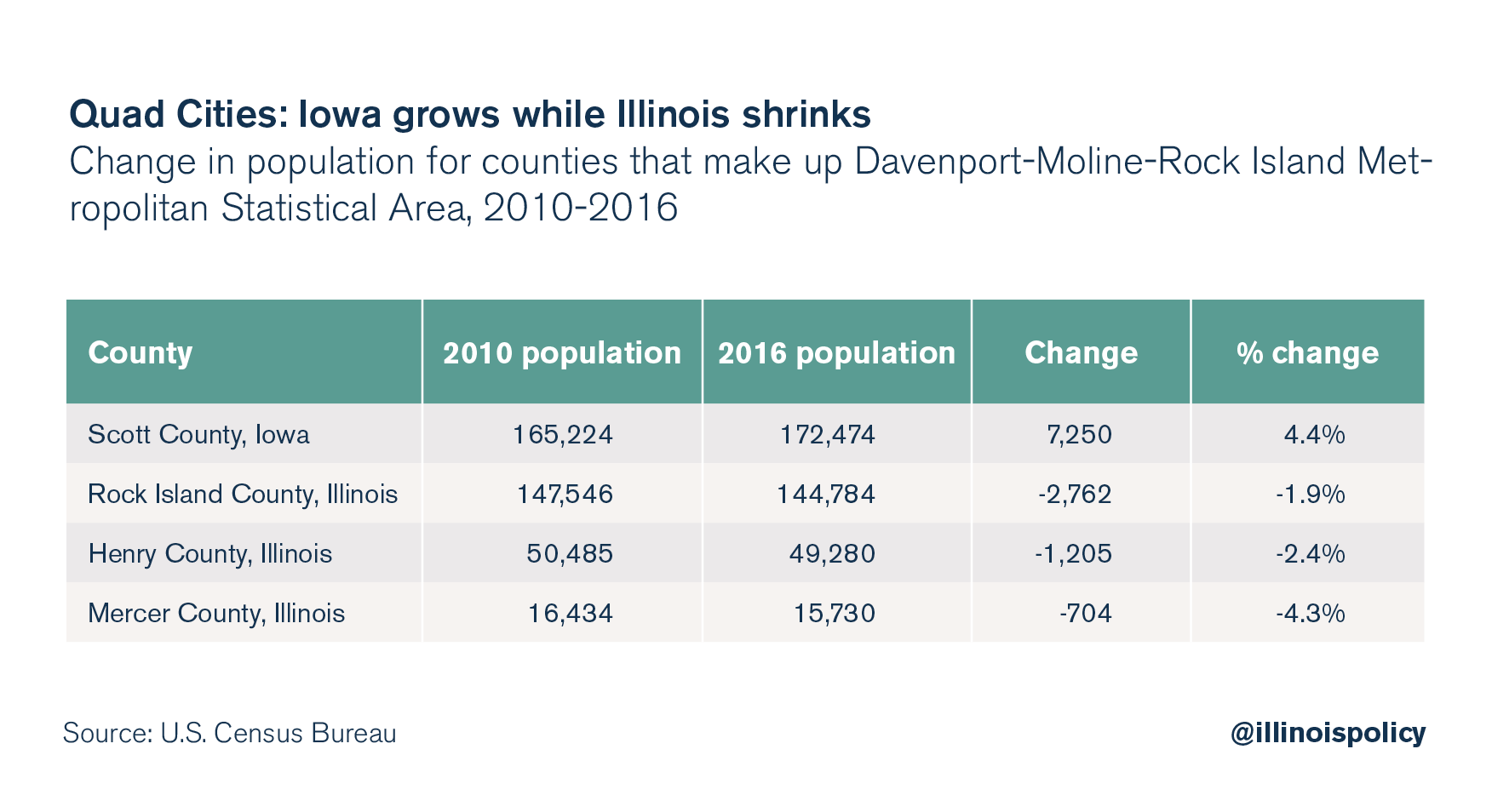Typical family in Rock Island County would see $513 tax hike under progressive tax proposal
The Illinois side of the Quad Cities is already seeing population loss as residents pack up and leave high tax burdens behind.
Though often sold to Illinoisans as a tax on the rich, a proposal to institute a graduated, or “progressive” income tax would constitute a tax hike on Illinoisans making as little as $17,300. And the typical family in Rock Island County would see a tax hike of more than $500.
Residents currently pay a flat income tax, which is protected by the Illinois Constitution. But state Rep. Robert Martwick, D-Chicago, has put forth new income tax rates under a progressive tax model in House Bill 3522. They are as follows:
- 4 percent for income between $0-$7,500
- 5.84 percent for income between $7,500-$15,000
- 6.27 percent for income between $15,000-$225,000
- 7.65 percent for income above $225,000
The median-income family in Rock Island County with two kids would pay an additional $513 in state income taxes under this plan. The median-income family in nearby Henry County with two kids would pay an additional $595.
This tax hike, piled on after a record income tax hike in 2017, would likely worsen outmigration problems from which the Illinois side of the Quad Cities region has been suffering.
The Quad Cities make up what’s called the Davenport-Moline-Rock Island Metropolitan Statistical Area, which stretches across three counties in Illinois: Rock Island, Henry and Mercer. The Iowa side is concentrated in one county: Scott.
From 2010 to 2016, the most recent year of available data from the U.S. Census Bureau, the divergence in population is clear.

What’s driving shrinkage on the Illinois side? People moving out. Mercer (losing a net of 564 residents), Henry (-1,244) and Rock Island (-6,891) counties all saw more people move out to other counties than move in from other counties.
At the same time, Scott County enjoyed an influx of 1,244 residents on net from other counties, as well as nearly 5,000 residents due to natural growth (births minus deaths). Rock Island County enjoyed modest natural growth, but that was completely wiped out due to outmigration.
